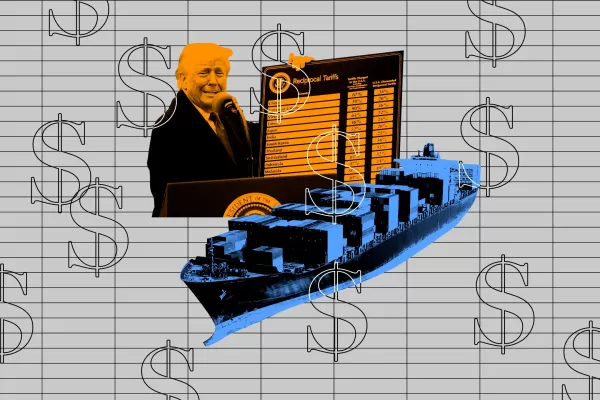Huawei CEO Ren Zhengfei on China's AI Ambitions and Resilience Strategy
Huawei CEO Ren Zhengfei shares candid insights on China's AI landscape and the challenges his company faces.
"I haven't dwelled on it," Ren states in a People’s Daily Q&A. "Overthinking is futile."
In an era of strategic plans and crisis response, his advice is strikingly straightforward: "Ignore the obstacles. Just act and progress steadily."
This philosophy guides Huawei through global sanctions and restrictions, reflecting a quiet resolve in Ren’s responses.
Discussing Huawei’s Ascend AI chips, Ren remains frank, avoiding exaggeration. He acknowledges the hype outpaces reality.
"The U.S. overstates Huawei’s progress. We’re not that advanced yet," he admits, noting their chips lag behind top competitors.
When access to cutting-edge tools is limited, Ren emphasizes ingenuity. Huawei leverages software and mathematical expertise to bridge hardware gaps in AI and beyond.
"We use math to compensate for physical limits," he explains, detailing how interconnected chip clusters deliver competitive performance. Necessity drives innovation.
Ren’s grounded outlook extends to people and products alike. In a world of corporate hype, he shuns excessive praise. "Praise creates pressure," he notes. "Criticism keeps us clear-headed."
He views user criticism as valuable feedback, a sign of strong customer connection. His focus remains firm: "Ignore praise or blame—focus on doing well."
At the core of Ren’s vision is a deep commitment to foundational scientific research, which he sees as the bedrock of progress.
"Without basic research, we lack roots," he cautions. "Even thriving branches fall in a storm."
Huawei backs this belief with substantial investment. Of its 180 billion yuan ($25 billion) R&D budget, one-third—60 billion yuan (~$8.34 billion)—funds theoretical research. This long-term bet on curiosity prioritizes future potential over immediate gains.
Looking ahead, Ren sees AI as a transformative force for Huawei and humanity. He believes China’s robust infrastructure and talent position it for leadership in this era.
Ren envisions AI breakthroughs driven not only by tech giants but by professionals across fields—doctors, engineers, miners—using AI to tackle real-world challenges.
His optimism shines through. He references a New York Times op-ed by Thomas L. Friedman, titled ‘I Just Saw the Future. It Was Not in America,’ capturing China’s potential.
Ren Zhengfei leads with calm amid turbulence, focusing on steady progress and deep-rooted innovation, ready for the future, one deliberate step at a time.
See also: Hugging Face partners with Groq for ultra-fast AI model inference
Want to learn more about AI and big data from industry leaders? Check out AI & Big Data Expo in Amsterdam, California, and London. This event is co-located with Intelligent Automation Conference, BlockX, Digital Transformation Week, and Cyber Security & Cloud Expo.
Explore other upcoming enterprise technology events and webinars powered by TechForge here.
Related article
 Google's NotebookLM Introduces AI-Powered Narration for Slideshows
NotebookLM from Google is introducing an innovative Video Overviews feature that harnesses AI technology to automatically generate narrated slideshow presentations. Currently rolling out with English support, Google has confirmed plans to expand lang
Google's NotebookLM Introduces AI-Powered Narration for Slideshows
NotebookLM from Google is introducing an innovative Video Overviews feature that harnesses AI technology to automatically generate narrated slideshow presentations. Currently rolling out with English support, Google has confirmed plans to expand lang
 Google's AI Now Handles Phone Calls for You
Google has expanded its AI calling feature to all US users through Search, enabling customers to inquire about pricing and availability with local businesses without phone conversations. Initially tested in January, this capability currently supports
Google's AI Now Handles Phone Calls for You
Google has expanded its AI calling feature to all US users through Search, enabling customers to inquire about pricing and availability with local businesses without phone conversations. Initially tested in January, this capability currently supports
 Trump Exempts Smartphones, Computers, and Chips from Tariff Hikes
The Trump administration has granted exclusions for smartphones, computers, and various electronic devices from recent tariff increases, even when imported from China, according to Bloomberg reporting. However, these products remain subject to earlie
Comments (6)
0/200
Trump Exempts Smartphones, Computers, and Chips from Tariff Hikes
The Trump administration has granted exclusions for smartphones, computers, and various electronic devices from recent tariff increases, even when imported from China, according to Bloomberg reporting. However, these products remain subject to earlie
Comments (6)
0/200
![StevenLopez]() StevenLopez
StevenLopez
 August 4, 2025 at 2:48:52 AM EDT
August 4, 2025 at 2:48:52 AM EDT
Ren's take on AI is refreshingly blunt! It's cool to see a CEO admit that overthinking is a trap. Curious how Huawei plans to navigate the global AI race with all the challenges—any bold moves coming? 😎


 0
0
![KevinGonzalez]() KevinGonzalez
KevinGonzalez
 August 2, 2025 at 11:07:14 AM EDT
August 2, 2025 at 11:07:14 AM EDT
Ren's take on AI is refreshingly blunt! It's cool to see a CEO admit overthinking's a trap. Curious how Huawei's gonna navigate the global AI race with all the restrictions they face. 🧠💪


 0
0
![EdwardMartinez]() EdwardMartinez
EdwardMartinez
 July 30, 2025 at 9:42:05 PM EDT
July 30, 2025 at 9:42:05 PM EDT
Ren's take on AI is refreshingly blunt—less hype, more grit. Huawei’s resilience strategy sounds like a masterclass in dodging curveballs. Curious how they’ll navigate the global AI race! 😎


 0
0
![TimothyRoberts]() TimothyRoberts
TimothyRoberts
 July 27, 2025 at 9:20:02 PM EDT
July 27, 2025 at 9:20:02 PM EDT
Huawei's AI push sounds ambitious, but Ren's 'no overthinking' vibe is oddly refreshing. Makes me wonder if they're onto something big or just keeping cool under pressure. 🤔


 0
0
![GeorgeLopez]() GeorgeLopez
GeorgeLopez
 July 27, 2025 at 9:19:05 PM EDT
July 27, 2025 at 9:19:05 PM EDT
Ren's take on AI is refreshingly blunt! It's wild how he shrugs off overthinking—makes me wonder if Huawei’s just charging forward without sweating the small stuff. Bold move! 🚀


 0
0
![WalterLewis]() WalterLewis
WalterLewis
 July 27, 2025 at 9:18:39 PM EDT
July 27, 2025 at 9:18:39 PM EDT
Ren's take on AI is refreshingly blunt! It's cool to see a CEO admit overthinking is pointless. Curious how Huawei's gonna push AI boundaries with all the challenges they face. 🤔


 0
0
Huawei CEO Ren Zhengfei shares candid insights on China's AI landscape and the challenges his company faces.
"I haven't dwelled on it," Ren states in a People’s Daily Q&A. "Overthinking is futile."
In an era of strategic plans and crisis response, his advice is strikingly straightforward: "Ignore the obstacles. Just act and progress steadily."
This philosophy guides Huawei through global sanctions and restrictions, reflecting a quiet resolve in Ren’s responses.
Discussing Huawei’s Ascend AI chips, Ren remains frank, avoiding exaggeration. He acknowledges the hype outpaces reality.
"The U.S. overstates Huawei’s progress. We’re not that advanced yet," he admits, noting their chips lag behind top competitors.
When access to cutting-edge tools is limited, Ren emphasizes ingenuity. Huawei leverages software and mathematical expertise to bridge hardware gaps in AI and beyond.
"We use math to compensate for physical limits," he explains, detailing how interconnected chip clusters deliver competitive performance. Necessity drives innovation.
Ren’s grounded outlook extends to people and products alike. In a world of corporate hype, he shuns excessive praise. "Praise creates pressure," he notes. "Criticism keeps us clear-headed."
He views user criticism as valuable feedback, a sign of strong customer connection. His focus remains firm: "Ignore praise or blame—focus on doing well."
At the core of Ren’s vision is a deep commitment to foundational scientific research, which he sees as the bedrock of progress.
"Without basic research, we lack roots," he cautions. "Even thriving branches fall in a storm."
Huawei backs this belief with substantial investment. Of its 180 billion yuan ($25 billion) R&D budget, one-third—60 billion yuan (~$8.34 billion)—funds theoretical research. This long-term bet on curiosity prioritizes future potential over immediate gains.
Looking ahead, Ren sees AI as a transformative force for Huawei and humanity. He believes China’s robust infrastructure and talent position it for leadership in this era.
Ren envisions AI breakthroughs driven not only by tech giants but by professionals across fields—doctors, engineers, miners—using AI to tackle real-world challenges.
His optimism shines through. He references a New York Times op-ed by Thomas L. Friedman, titled ‘I Just Saw the Future. It Was Not in America,’ capturing China’s potential.
Ren Zhengfei leads with calm amid turbulence, focusing on steady progress and deep-rooted innovation, ready for the future, one deliberate step at a time.
See also: Hugging Face partners with Groq for ultra-fast AI model inference
Want to learn more about AI and big data from industry leaders? Check out AI & Big Data Expo in Amsterdam, California, and London. This event is co-located with Intelligent Automation Conference, BlockX, Digital Transformation Week, and Cyber Security & Cloud Expo.
Explore other upcoming enterprise technology events and webinars powered by TechForge here.
 Google's NotebookLM Introduces AI-Powered Narration for Slideshows
NotebookLM from Google is introducing an innovative Video Overviews feature that harnesses AI technology to automatically generate narrated slideshow presentations. Currently rolling out with English support, Google has confirmed plans to expand lang
Google's NotebookLM Introduces AI-Powered Narration for Slideshows
NotebookLM from Google is introducing an innovative Video Overviews feature that harnesses AI technology to automatically generate narrated slideshow presentations. Currently rolling out with English support, Google has confirmed plans to expand lang
 Google's AI Now Handles Phone Calls for You
Google has expanded its AI calling feature to all US users through Search, enabling customers to inquire about pricing and availability with local businesses without phone conversations. Initially tested in January, this capability currently supports
Google's AI Now Handles Phone Calls for You
Google has expanded its AI calling feature to all US users through Search, enabling customers to inquire about pricing and availability with local businesses without phone conversations. Initially tested in January, this capability currently supports
 Trump Exempts Smartphones, Computers, and Chips from Tariff Hikes
The Trump administration has granted exclusions for smartphones, computers, and various electronic devices from recent tariff increases, even when imported from China, according to Bloomberg reporting. However, these products remain subject to earlie
Trump Exempts Smartphones, Computers, and Chips from Tariff Hikes
The Trump administration has granted exclusions for smartphones, computers, and various electronic devices from recent tariff increases, even when imported from China, according to Bloomberg reporting. However, these products remain subject to earlie
 August 4, 2025 at 2:48:52 AM EDT
August 4, 2025 at 2:48:52 AM EDT
Ren's take on AI is refreshingly blunt! It's cool to see a CEO admit that overthinking is a trap. Curious how Huawei plans to navigate the global AI race with all the challenges—any bold moves coming? 😎


 0
0
 August 2, 2025 at 11:07:14 AM EDT
August 2, 2025 at 11:07:14 AM EDT
Ren's take on AI is refreshingly blunt! It's cool to see a CEO admit overthinking's a trap. Curious how Huawei's gonna navigate the global AI race with all the restrictions they face. 🧠💪


 0
0
 July 30, 2025 at 9:42:05 PM EDT
July 30, 2025 at 9:42:05 PM EDT
Ren's take on AI is refreshingly blunt—less hype, more grit. Huawei’s resilience strategy sounds like a masterclass in dodging curveballs. Curious how they’ll navigate the global AI race! 😎


 0
0
 July 27, 2025 at 9:20:02 PM EDT
July 27, 2025 at 9:20:02 PM EDT
Huawei's AI push sounds ambitious, but Ren's 'no overthinking' vibe is oddly refreshing. Makes me wonder if they're onto something big or just keeping cool under pressure. 🤔


 0
0
 July 27, 2025 at 9:19:05 PM EDT
July 27, 2025 at 9:19:05 PM EDT
Ren's take on AI is refreshingly blunt! It's wild how he shrugs off overthinking—makes me wonder if Huawei’s just charging forward without sweating the small stuff. Bold move! 🚀


 0
0
 July 27, 2025 at 9:18:39 PM EDT
July 27, 2025 at 9:18:39 PM EDT
Ren's take on AI is refreshingly blunt! It's cool to see a CEO admit overthinking is pointless. Curious how Huawei's gonna push AI boundaries with all the challenges they face. 🤔


 0
0





























